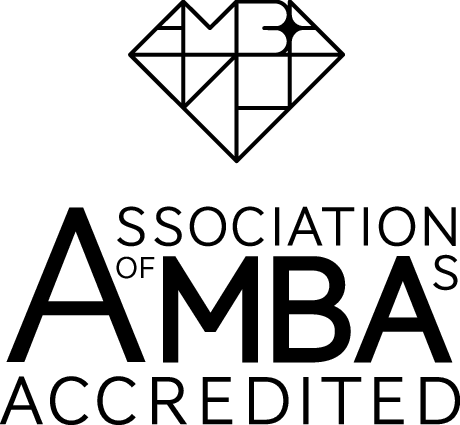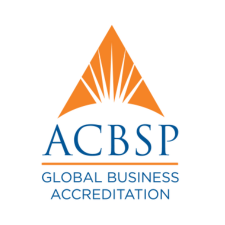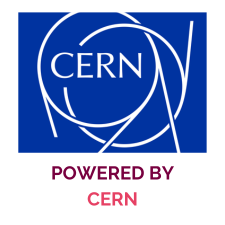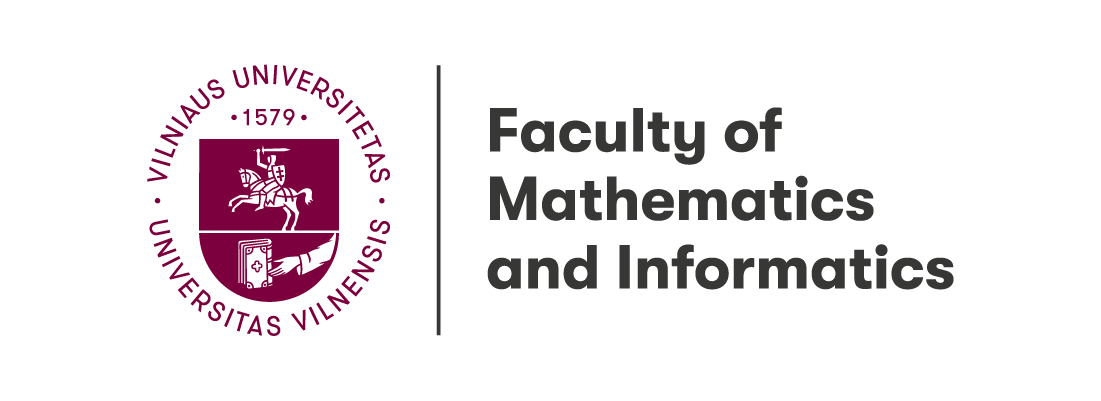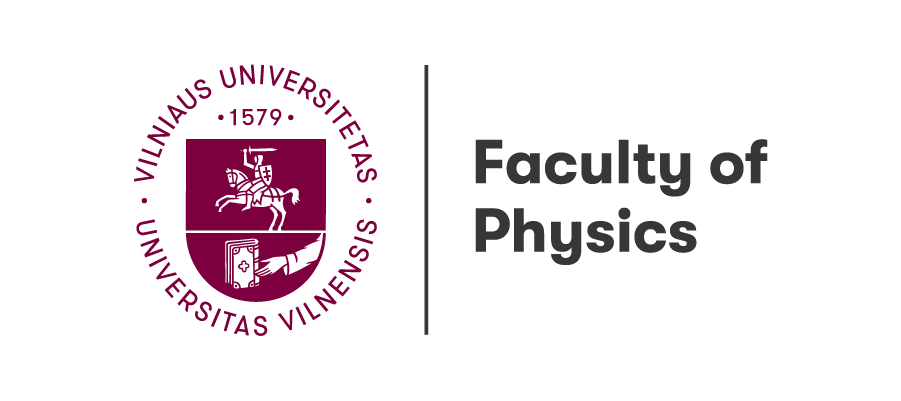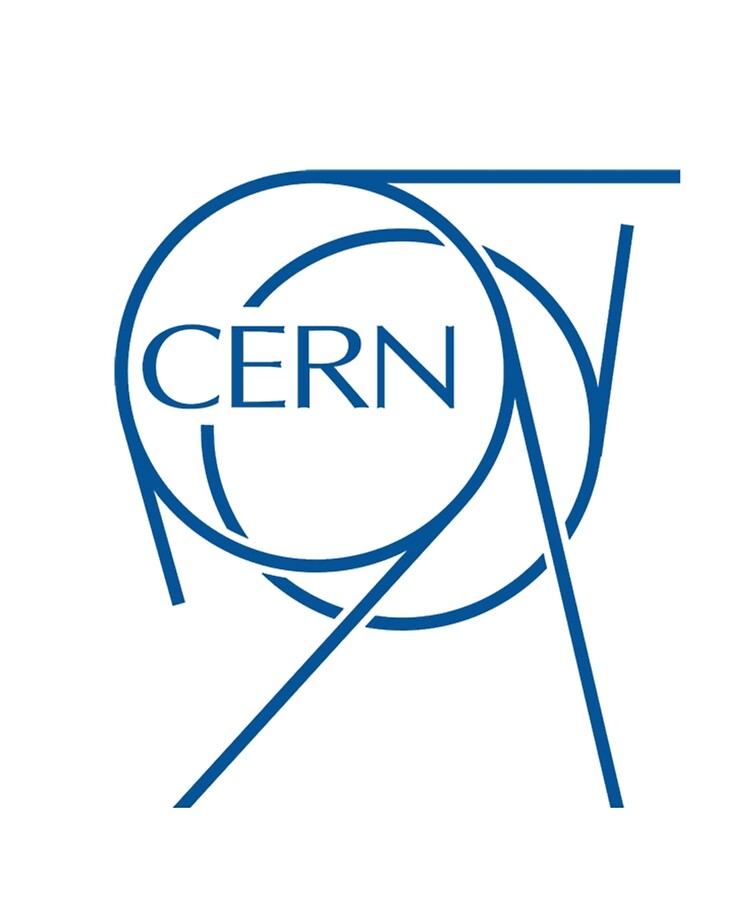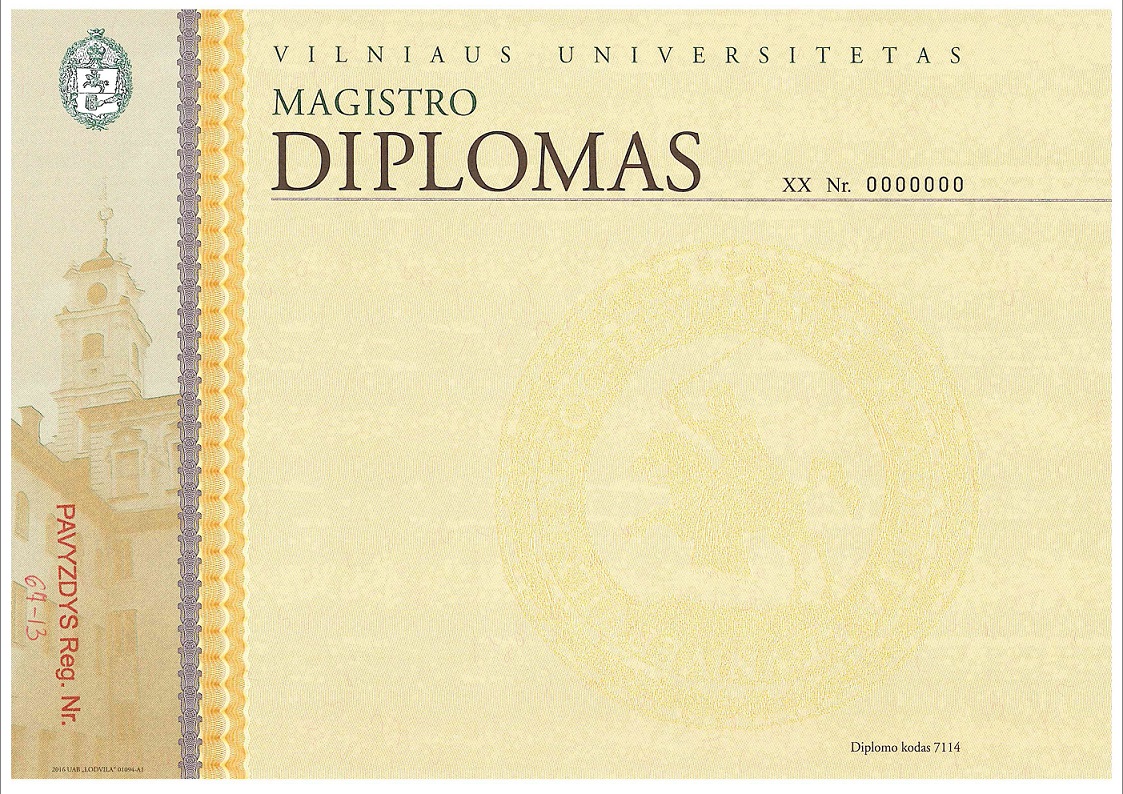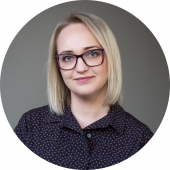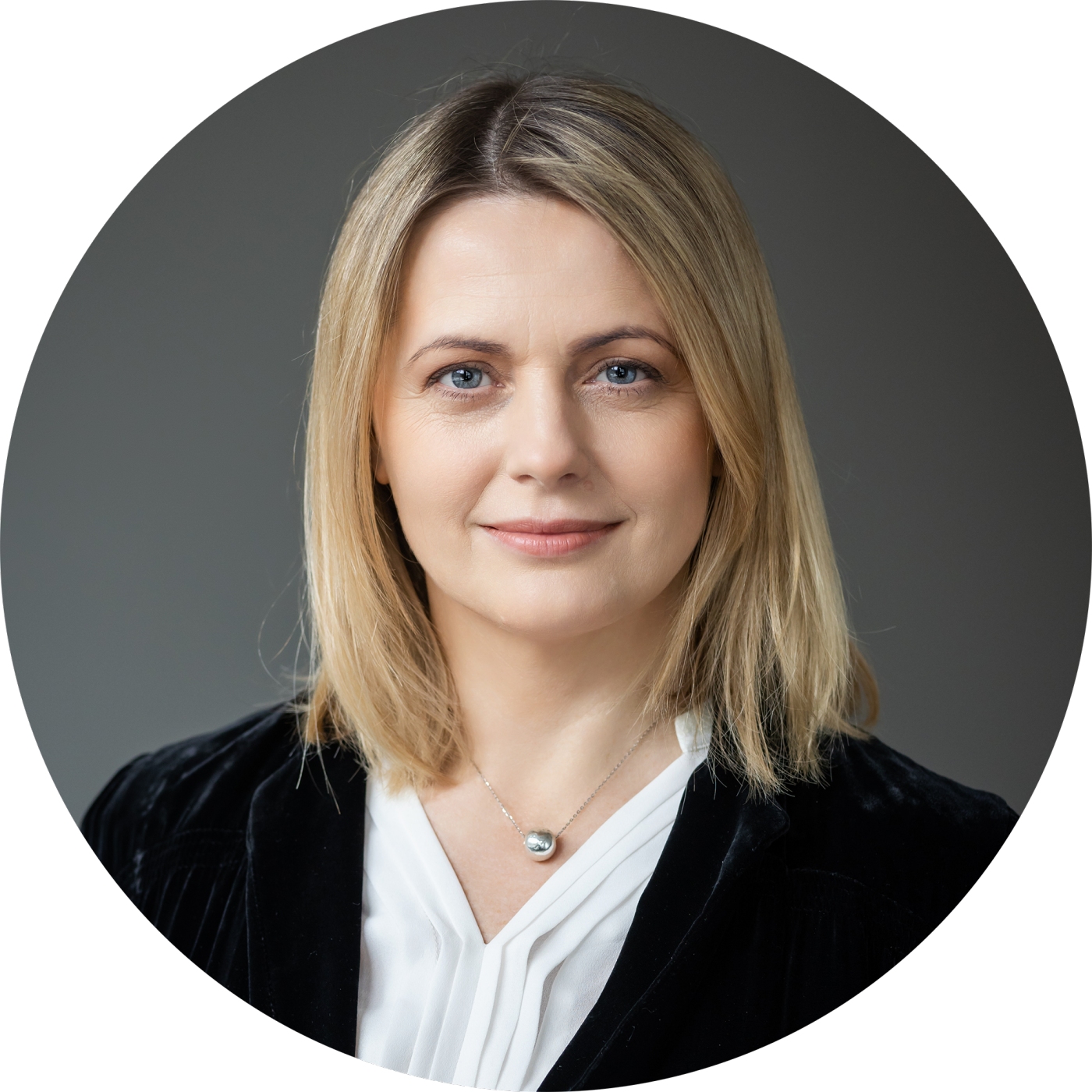About
 |
Why should you choose DeepTech Entrepreneurship? |
DeepTech Entrepreneurship programme is a unique MSc programme that blends academic knowledge, start-up accelerator and real experience to prepare students to become the next-generation of successful technology entrepreneurs.
Future oriented organizations are looking for employees with entrepreneurial mindsets. This programme aims to educate LEADERS at the intersection of science and business, with a deep understanding of technology, data science, innovation management, and entrepreneurship.
VU Business School seeks not only to give students the skills and knowledge necessary to succeed but also to EMPOWER the future professionals to integrate them into the start-ups ecosystem in order to grow transformative organizations that will advance to bridge THE WORLDS of technology and management.
The programme is developed in three major areas:
- technologies
- entrepreneurship
- strategic leadership
This programme is designed and implemented together with:
This study program is a member of:
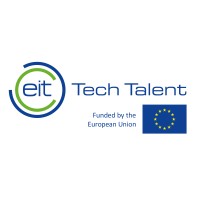
More about this study program:
 |
Skills you will get |
- entrepreneurship and its application;
- innovation and the issues related to developing them in business;
- how to design strategies for new opportunities;
- how to develop innovation-driven company
 |
By the end of the programme you will be able to: |
- integrate knowledge from different fields into action;
- solve complex problems in undefined situations;
- integrate the deeptech opportunities;
- forecast and initiate change;
- develop innovative products;
- communicate effectively;
- engage with a wide range of stakeholders;
- work effectively in diverse environments.
 |
Career paths |
| FOUNDER |
INNOVATION MANAGER |
BUSINESS DEVELOPER |
MARKETING PROFESSIONAL |
TECHNOLOGY ENTREPRENEUR |
| Founders of start-ups and spin-offs are entrepreneurship and innovation. They inspire their team, make the core decisions, are the main public representative. |
The supreme visioner leading the company into strategic future business opportunities. They shape the culture and processes for innovation to succeed in an organization, train others to become better. |
The networker who makes essential connections. It is a strategic role that demands creativity, excellent business foresight, top negotiation skills, intuition in innovations. |
The marketing lead in a company is a growth-hacker. Marketing professional is capable to implement long-vision marketing strategies, adapt to business needs to change, and is responsible for corporate marketing and product management. |
Tech Entrepreneur sees the future of “blue” ideas using technology to launch start-ups, create jobs, develop innovations. Remember these names: Bill Gates, Steve Jobs, Mark Zuckerberg. |
VU BS students who enrolled during the 2025-2026 admission period (from the autumn semester of 2025) and study in non-state-funded places, the tuition fee may be reduced to the normative price for outstanding academic performance – if they complete the semester with a study average of no less than 9.5. Academic performance is reviewed each semester.
Study Program

Lectures are organized in a full-time study mode. Classes are delivered in intensive modules, usually 2–3 work days per week (Thursday, Friday, Saturday). Visiting Professors’ lectures are held on Fridays from 9:00 am to 4:00 pm or from 3:00 pm to 8:00 pm.
I Semester
| I SEMESTER |
| Compulsory Courses |
Lecturers |
|
Leadership and Strategic Management (5 ECTS)
Students will be able to identify and measure DeepTech entrepreneurship conditions, relying on global, international, the EU’s, national, industry and micro level. They will understand various schools of thought regarding strategy formation and leadership and will be able to apply them; will be able to assess the suitability, feasibility, and acceptability of strategies in technology and innovation development contexts and be able to apply the information management and business intelligence techniques. Students will be capable to implement socially responsible, ethical/ moral, and sustainable DeepTech Strategy while assuring the quality and effectiveness.
|
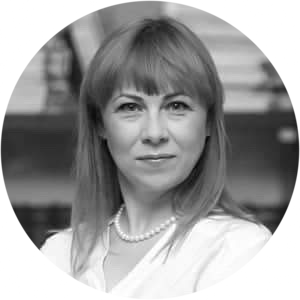
Lect. Jurgita Petrauskienė
|
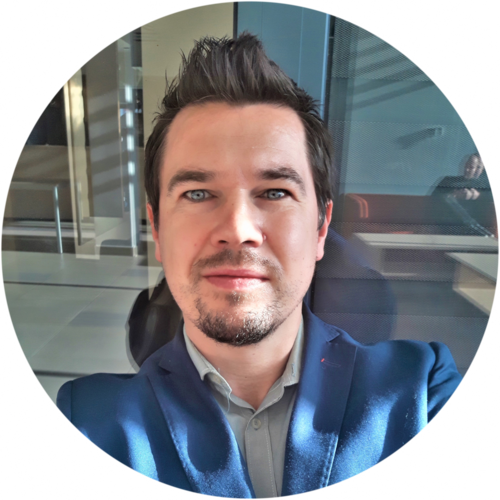
Professor PhD. Mindaugas Laužikas
|
|
|
|
|
|
Design and Implementation of Engineering Products Development (10 ECTS)
The purpose of this course is to introduce students to product development cycle: from ideation stage to product development design and its execution via new product development project, finally ending with business development leading to first sales with special emphasis on Lean-Start up process. Students will have to put knowledge gained in lectures straight away into practice by preparing a deep-tech product development proposal on a freely chosen topic. This proposal later may serve as a basis for a creation of a start-up, namely as an input for a business plan preparation, or for an implementation of a deep-tech product development project in already existing company. Thus, students shall be encouraged to choose a deep-tech product that is related to their career plans.
|
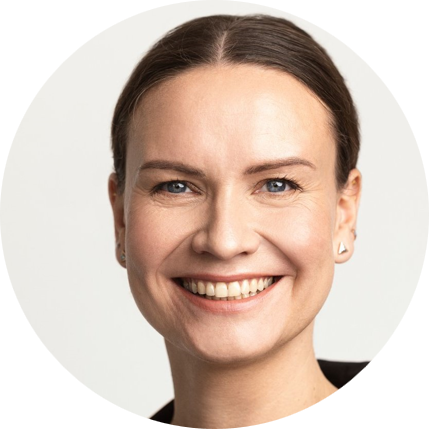
Associate Professor PhD. Eglė Radvilė
|
|
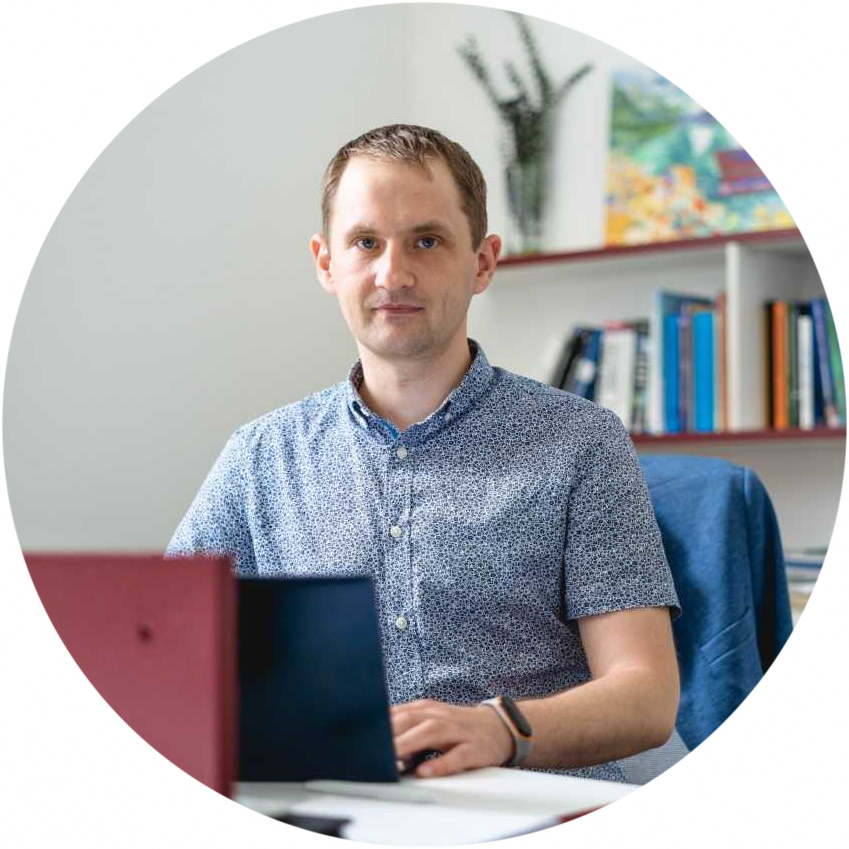
Associate Professor PhD. Pranciškus Vitta
|
|
|
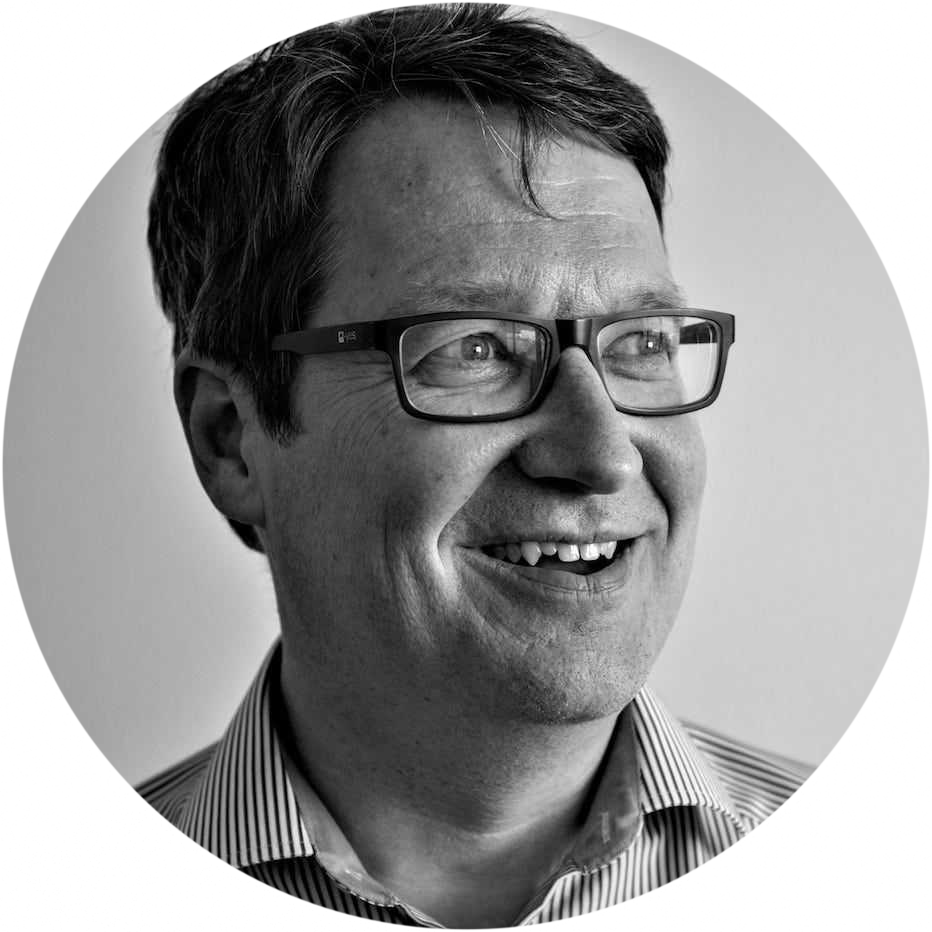
Professor PhD. Christoph Schäfer
|
|
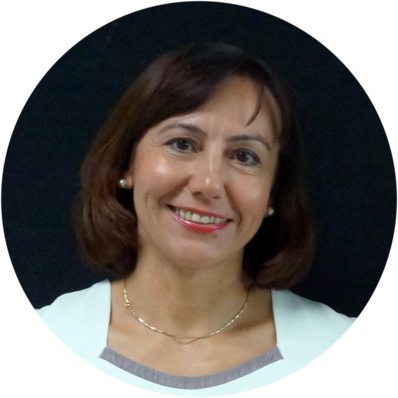
Associate Professor PhD. Danguolė Oželienė
|
|
|
|
HighTech Market and Business Models (10 ECTS)
This course is aimed at revealing the peculiarities of the development of High-Tech products and the specific features of companies and markets strategies in the realm of High-Tech. It provides an in-depth overview of the main approaches to High-Tech in business. An inclusive involvement of students is an important feature of the course, whereas the teaching will be based on real examples ranging from early-stage spin-off and startup companies to large-scale international frontier facilities with a special focus on CERN.
|
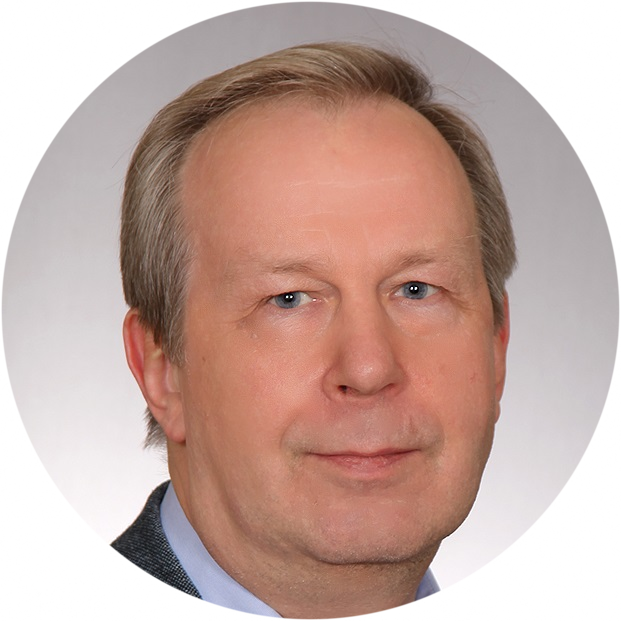
|
|
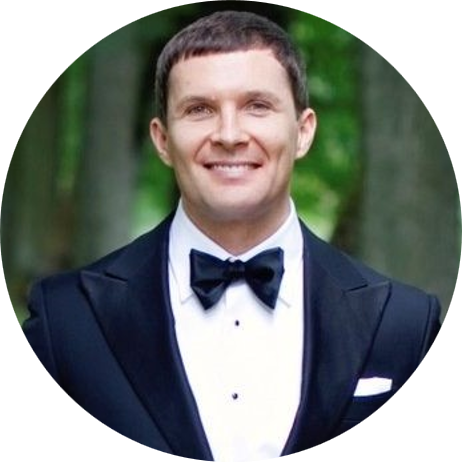
|
|
|
|
Professor PhD. Gintautas Tamulaitis
|
|
Professor PhD. Tadas Limba
|
|
|
| Elective Courses |
|
Practical statistics in R for Business Analytics (5 ECTS)
Students will be able to apply knowledge in practice, think, analyse and systematize information in an abstract way. They will be able to select and adapt descriptive statistical methods to address the challenges arising from practical activities, to carry out studies, to critically assess the results and reliability of studies.
|
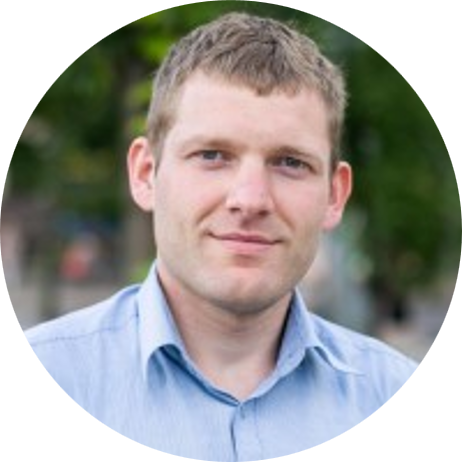
|
|
Associate Professor PhD. Dainius Dzindzalieta
|
|
Laser Technology (5 ECTS)
During this course students will get acquintance with laser systems for materials processing, medicine, diagnostics and other application areas, their operating principles and design features. They will understand the capabilities of such systems. Main subjects of the course are development and tendencies of laser technology applications; laser material processing; photolithography and applications; optical information storage; optical communications systems; applications of lasers in metrology and monitoring; applications of lasers in building, geodesy and agriculture; basics of laser medicine; basics of laser diagnostics; basics of laser spectroscopy. The understanding of the operation basics of the laser systems used in material processing, medicine, spectroscopy and etc. is developed. During the laboratory work the skills at the practical use of some laser systems will be developed.
|
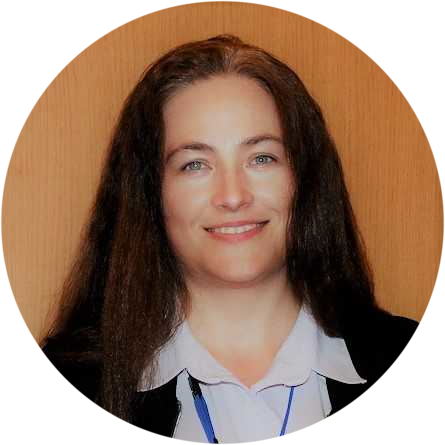
Associate Professor PhD. Ona Balachninaitė
|
|
|
|
Project Management (5 ECTS)
With this course, students will gain the knowledge needed to successfully plan, implement and manage projects. Students will familiarize with the key concepts of project planning and management; will be able to identify and analyse the factors that lead to project success; and will learn how to plan, document and manage projects; and to become a better project manager. In this intensive and hands-on course, students will practice strategic communication, problem-solving, leadership, teamwork and stakeholder management skills that contribute to the successful implementation of the project.
|
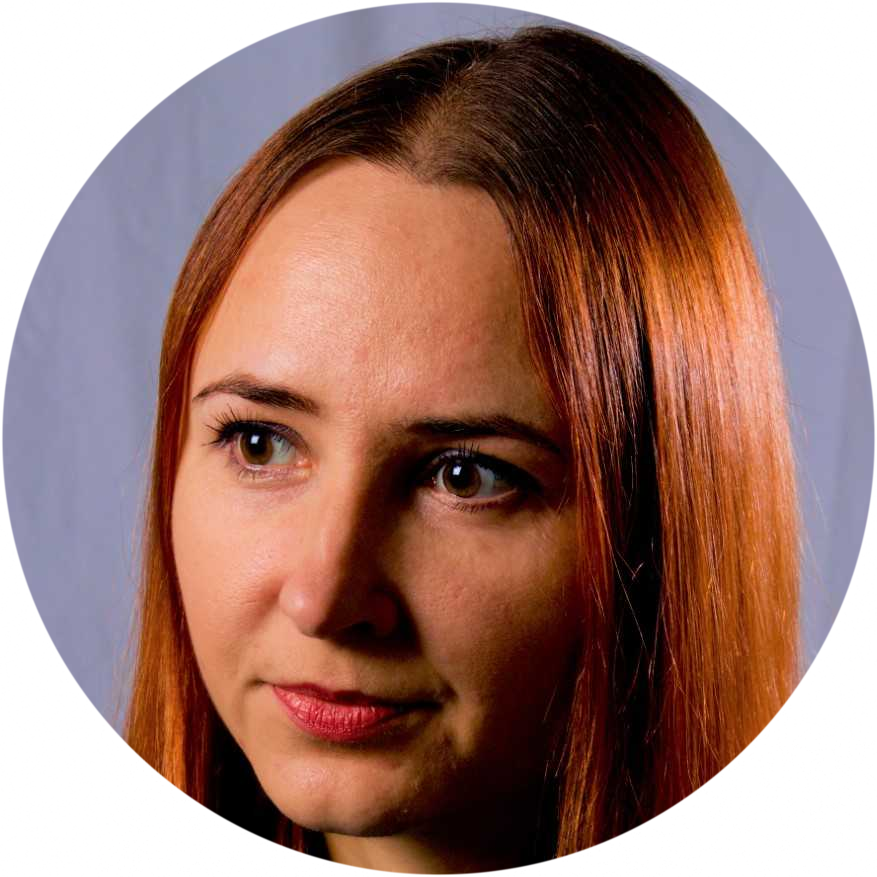
Lect. Rasa Žakevičiūtė
|
|
Lithuanian Language A I/II (5 ECTS)
This course is designed for beginners and aims to develop basic Lithuanian language skills (level A1.1). It focuses on real-life communication — from meeting people and navigating the city to ordering food and asking for directions. Students will practice all four key language skills: listening, speaking, reading, writing. In addition to language, the course also introduces aspects of Lithuanian culture and everyday life.
|
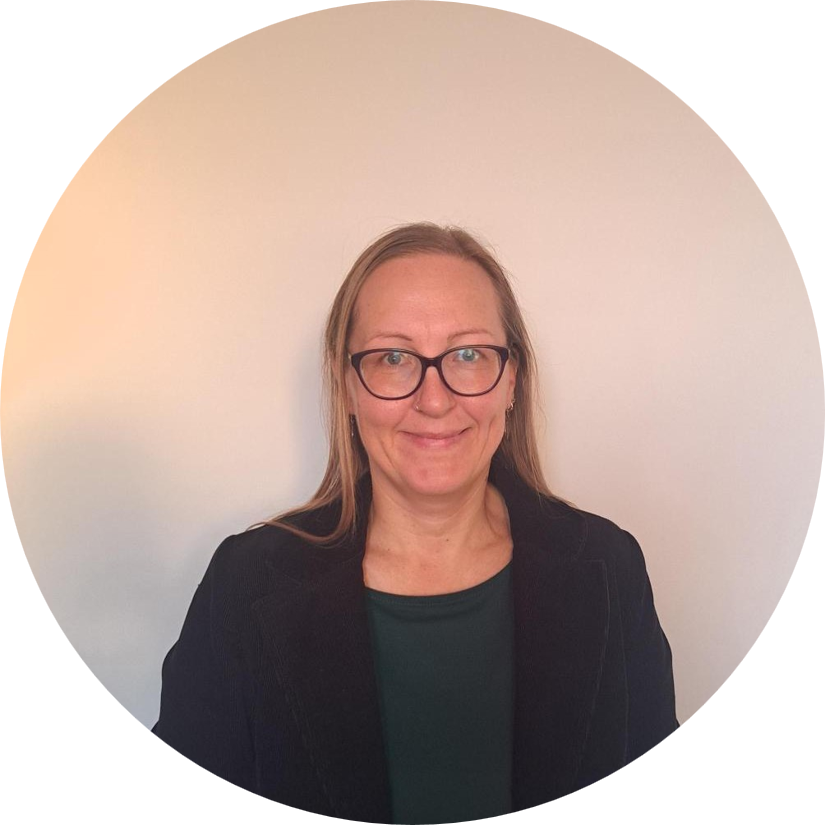
Lect. Giedrė Junčytė
|
| |
|
II Semester
| II SEMESTER |
| Compulsory Courses |
Lecturers |
|
Innovation Management and Technology Transfer (10 ECTS)
Innovation Management and Technology Transfer discipline aims to develop skills and deepen understanding of students how innovation and technology, including knowledge, can help to develop a disruptive vision for businesses. The main objective is to train students from a practical perspective, providing them with an experience in the culture and expertise of different innovation-oriented sectors in Lithuania and beyond. The discipline also focuses on inspiring and connecting the students with the network and opportunities offered by CERN and different business incubators, including frontier research. Through this program, the student immerses in the culture, the leadership style, the approach to innovation, the technological disruption, and other approaches and practical solutions that enhance business to be leading in innovation and entrepreneurship.
The student may choose to specialize in the sector related to the start-up concept.
|
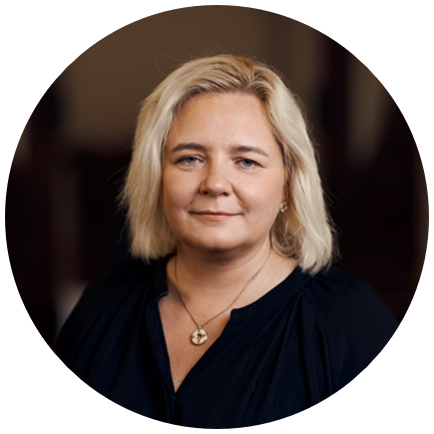
Professor PhD. Saulė Mačiukaitė-Žvieninė
|
| |
|
|
Artificial Intelligence and Data Analytics (10 ECTS)
Module is designed to provide participants with a comprehensive overview of best approaches to working with data using powerful open-source tools. The purpose of the course is to deepen the knowledge of computing and improve the efficiency of data analysis tasks. Students will also learn best practices of structuring data-oriented efforts and handling data. An introduction to AI and LLMs will be also given.
|
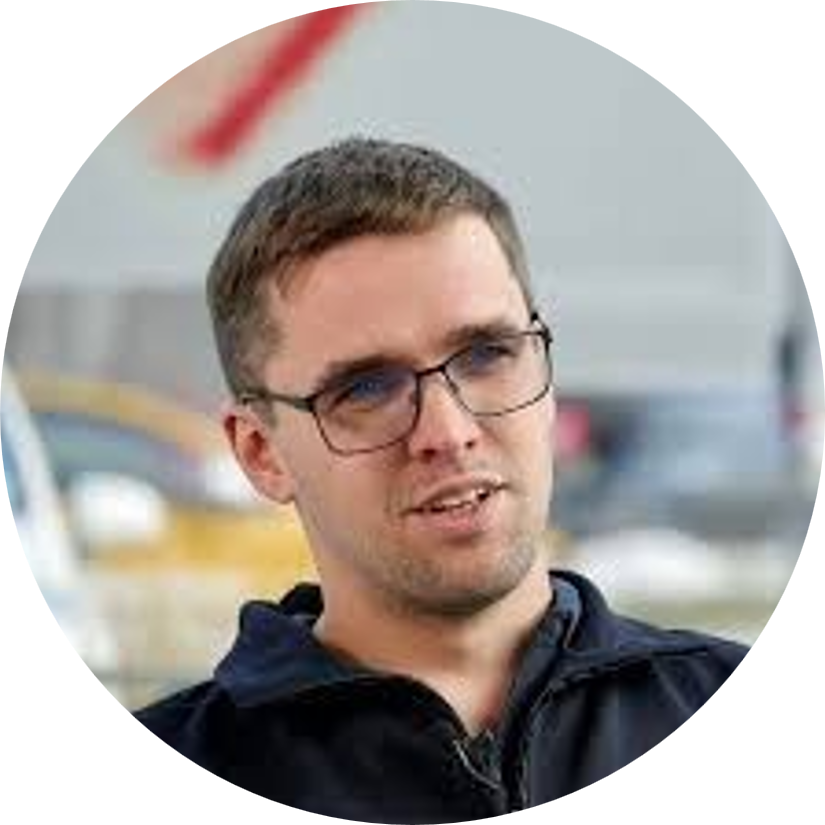
PhD. Mindaugas Šarpis
|
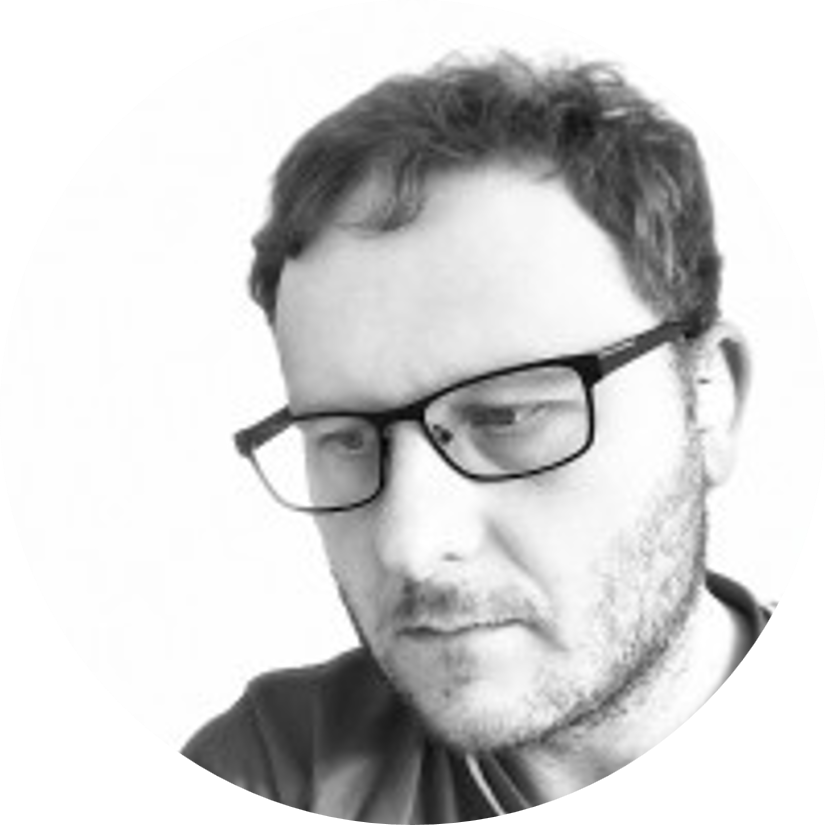
PhD. Tadas Danielius
|
| |
|
|
Structuring Investments and Partnerships (5 ECTS)
This module is designed for students who plan to be involved with a start-up company or other type of business enterprise at some point in their career as a Founder, Leader, Manager, Investor, Board Member, or Advisor. The course covers the entire lifecycle of a start-up company, role of academic, corporate, and other types of partners in company development, investments strategies and negotiations. The course also provides the students a broader view of the financing landscape and deal structures for start-up companies, going far beyond the basics of entrepreneurial strategies and venture capital and angel financing approaches, while covering stages from company launch to IPO / M&A, and delves into a wide variety of financing alternatives from equity to debt, bootstrap to buyout, including successes and challenges, specifics of negotiations and role of ethics.
|
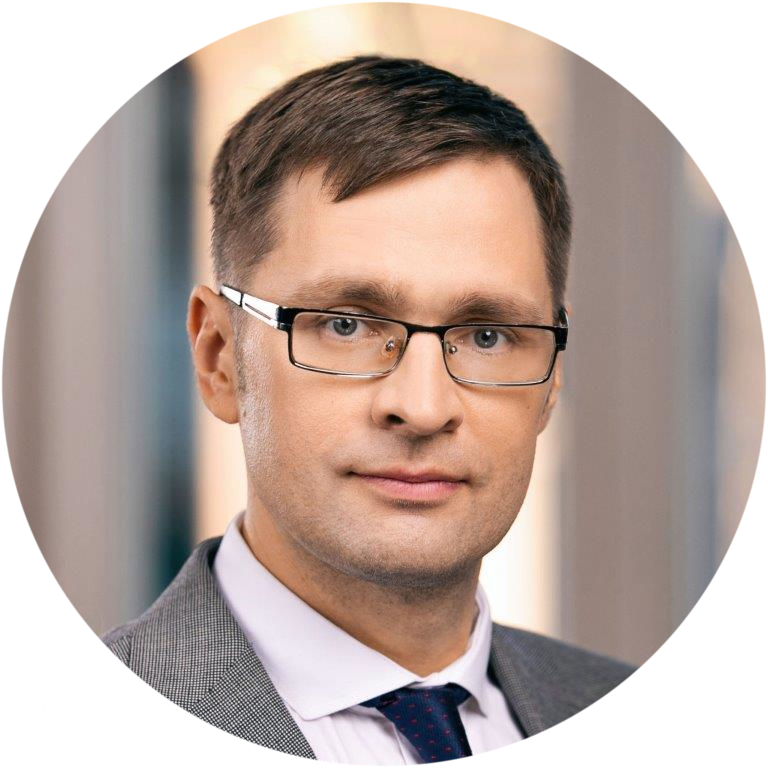
Associate Professor of Partnerships Robertas Vyšniauskas |
| |
|
| Elective Course |
|
Nano- and Microstructure Technologies (5 ECTS)
Students will get familiar with the micro- and nano-structures, used materials and employed processing technologies. They will gain fundamentals of diverse nano-technologies including fabrication, characterization and applications. After the couse the students will have developed abilities to produce micro- and nano-structures, characterize their properties and evaluate functional performance.
|
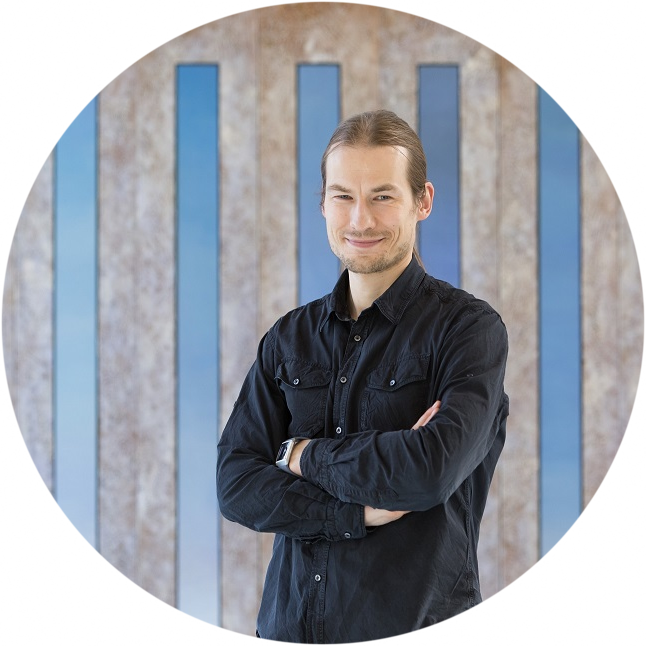
Professor PhD. Mangirdas Malinauskas
|
| |
|
|
Software Development Process (5 ECTS)
During this course students will get knowledge of software development process methodologies, project management activities. They will be introduced to heavy weighted and agile methodology concepts and application areas, understand the importance of the classical use cases and user stories capturing process and requirement development estimation.
|
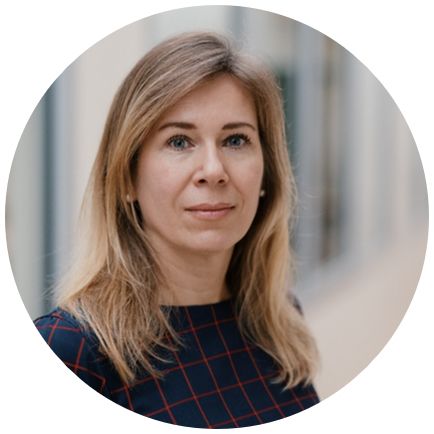
Associate Professor Jolanta Miliauskaitė
|
| |
|
|
Advanced Creative Thinking and Communication (5 ECTS)
In collaboration with Kaospilot, this course is designed to transform how individuals approach problems. It helps unlock creative potential, offering new perspectives and the ability to challenge conventional thinking.
Through three intensive workshop days and an online seminar, participants engage in practical exercises that enhance their ability to innovate and gain support for new ideas. The course combines scientific insights with hands-on practice, following the Kaospilot philosophy of blending theory, reflection, and experimentation. By the end, participants will have a clear plan for applying creative thinking in their personal and professional lives.
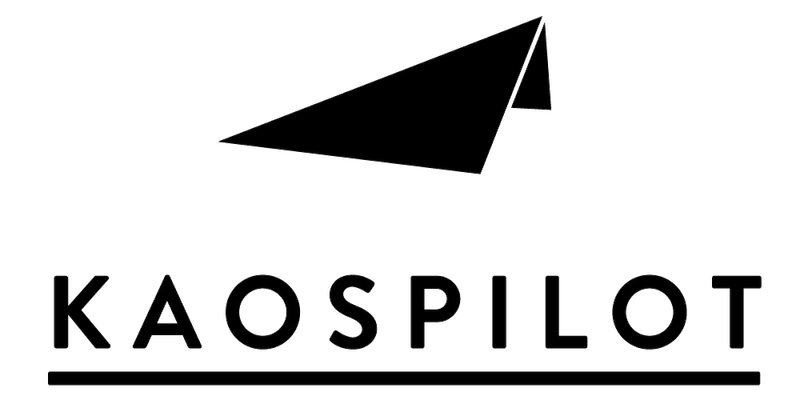
Powered by
|
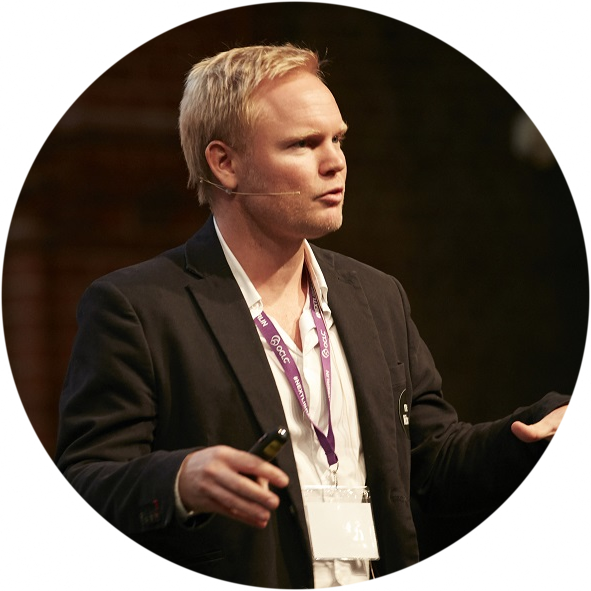
Professor PhD. Christian Byrge
|
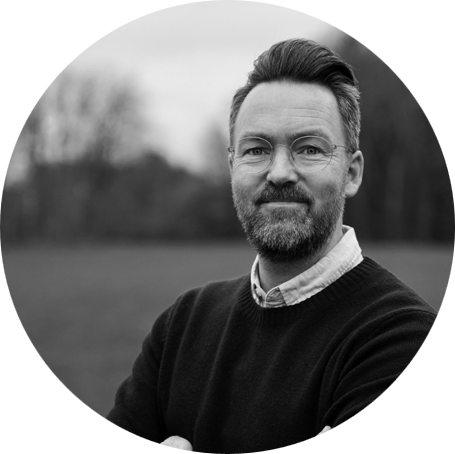
Lect. Dennis Dybdal
|
|
Lithuanian Language A II/II (5 ECTS)
The aim of the continuous course is to develop knowledge and skills in Lithuanian grammar, vocabulary, reading and listening comprehension, spoken and written communication at A1.2 level (according to the BEKM), as well as basic pragmatic and sociolinguistic competences.
|

Lect. Giedrė Junčytė
|
III Semester
| |
| III SEMESTER |
| Compulsory Courses |
|
Research Thesis / Start-up Capstone (30 ECTS)
|
|
*Lecturers and courses can be subject to change.
CERN Visit
A study visit to CERN is compulsory for at least one student in the group who will develop their own start-up.
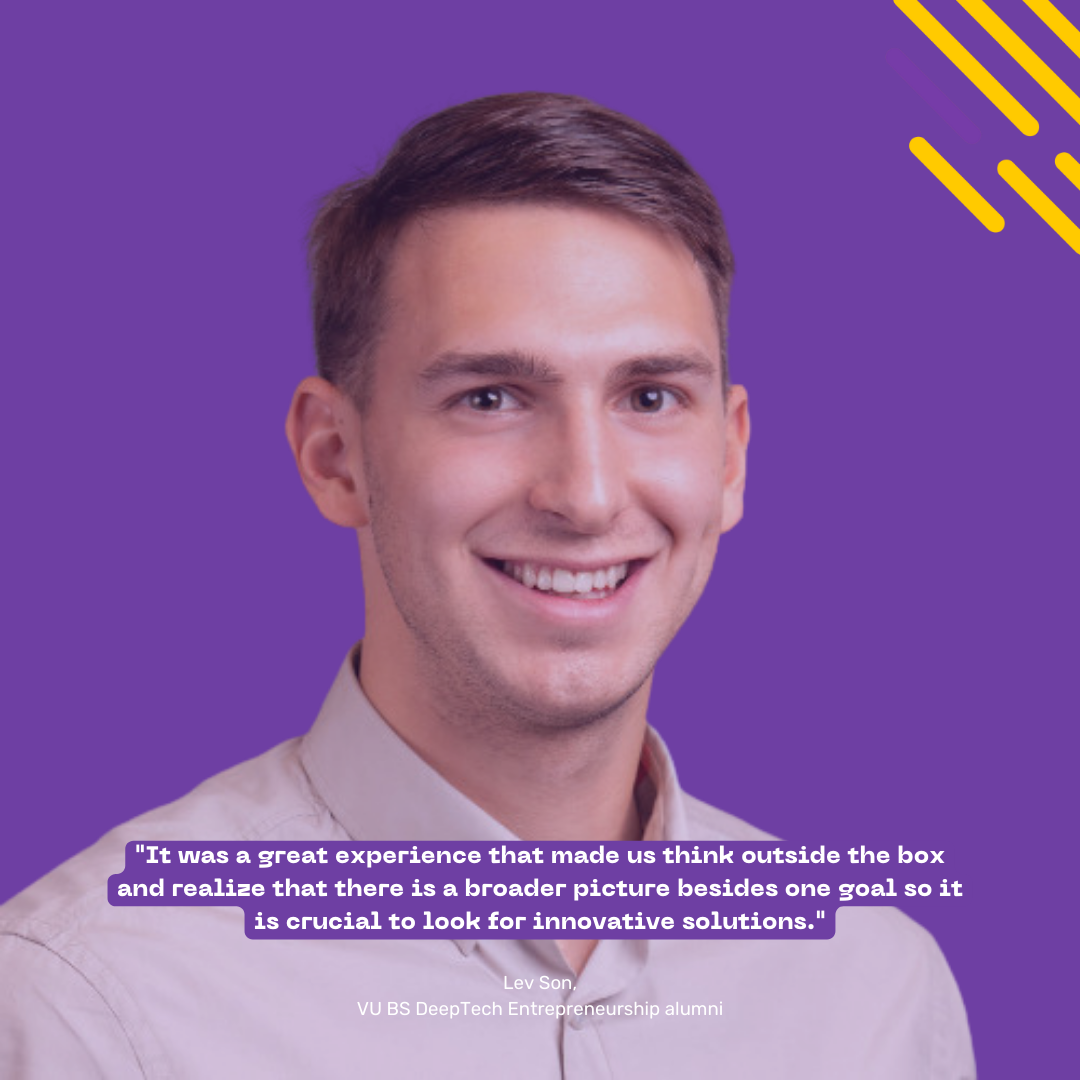
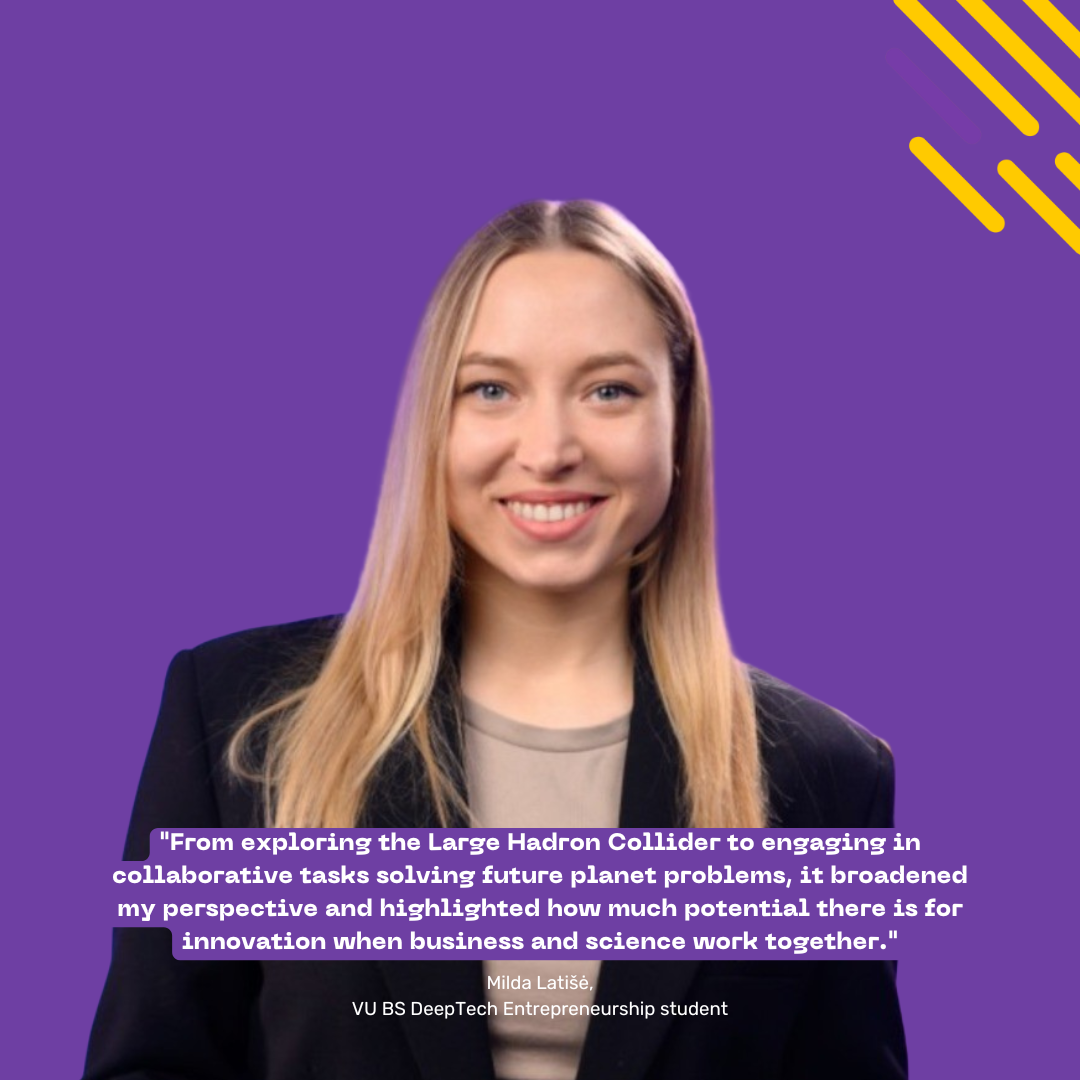
Admission
| General admission requirements and selection criteria |
|
● Bachelor`s degree (university diploma) in Business and Management or in Management and Business Administration or Economics.
● Bachelor`s degree (university diploma) or equivalent, and have at least 20 credits in business and / or economics.
● Bachelor's degree or an equivalent university diploma in another field and have at least one years work experience related to the desired/intended study program.*
● Bachelor`s degree (colege diploma) in Business and Management or in Management and Business Administration or Economics with not less than 8 weighted average and have at least one years work experience related to the desired/intended study program.*
* For Lithuanian applicants only
|
| For all Lithuanian and EU applicants |
|
Structure of the competitive score:
VS*0,5 + D*0,5
VS – the average of diploma appendix (appendix) grades, except for graduation thesis and/or final exam (s).
D - grade of the final thesis and/or final exam (average grade) or average final examination grade.
|
| For International applicants |
|
● English language proficiency:
- the level not lower than B2 (following the Common European Framework of Reference for Languages (CEFR).
- If your first language is English and/or if you have a university degree in English, you will be exempt from providing an English language test score.
● Applicants with an overall grade average of at least 70% are eligible for admission.
● For non-EU/EFTA applicants: the gap since you completed Bachelor degree should not exceed five years.
● If qualifications match the program, the applicant will receive an invitation to pre-record a video interview. More details will be provided during the application.*
● Applicants from Bangladesh, Nepal and Pakistan must submit OMPT-A (Online Mathematics Placement Test) Certificate (minimum passing grade – 55%). More information can be found HERE.
* The Vilnius University Business School Admission Committee might invite their candidate for a face-to-face interview.
|
Financing
| TYPE OF STUDY FINANCING FORM |
TUITION FEE/SEMESTER |
| Own-funded study place for non-EU/EFTA countries* |
3275 Eur |
| Own-funded study place for EU/EFTA, Ukraine, and for graduates of other Lithuanian universities* |
2725 Eur |
Own-funded study place for VU/VUIBS alumni/VU
Exchange students |
2345 Eur |
* The standard tuition fee (2345 Eur) applies to students admitted in the 2025/2026 academic year who complete their first autumn semester with a GPA of at least 95%. Academic performance is reviewed individually each semester.
During their studies, students may apply for VU Business School scholarships, social, incentive scholarships, and others. The information is announced every year through Business School communication channels.
Students who finish a semester at VU BS with a perfect GPA (10.0) are granted up to 1000 EUR excellence scholarship. This scholarship can be earned every semester – excellence is rewarded continuously.
Be among the TOP 5 STUDENTS in your program (based on admission score or GPA for international students) and study for the regular tuition fee. Both Lithuanian and international applicants compete in the same ranking.
Academic counceling
At VU Business School we pay a lot of attention to students' academic counseling. If you have any questions during your studies, you can contact your study coordinator to solve any problem or just to talk.
During the studies, all relevant information will be delivered by the study coordinator.
Please meet the study coordinator for this study program:
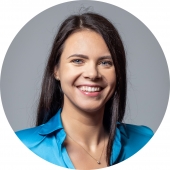 |
Aušra Sakalauskytė
tel. +370 698 00 073

|
Diploma
University studies shall be completed when all requirements of the chosen full-time study programme are fulfilled. Graduates of University study shall receive a diploma certifying hereof.
If students fulfill the first and second cycle full-time study programmes with especially high results, they are issued a special CUM LAUDE diploma. If students fulfil the second cycle full-time study programme or the integrated study programme with especially high results and have distinct scientific competence, they are issued a special MAGNA CUM LAUDE diploma.
Diploma Supplement which identifies study subjects, their content, and results, is issued together with diploma. Diploma Supplement is a document that complies with the model agreed by the European Commission, the Council of Europe and UNESCO/CEPES; it supplements a higher education, Master or Bachelor diploma with the data required for international academic and professional recognition, provides a description of the nature and contents of the studies completed by its holder and gives details on the national higher education system.
Diploma Supplement is produced in Lithuanian and English and is issued to all graduates since 2006 automatically and free of charge as an integral part of diploma.
Committee
 |
 |
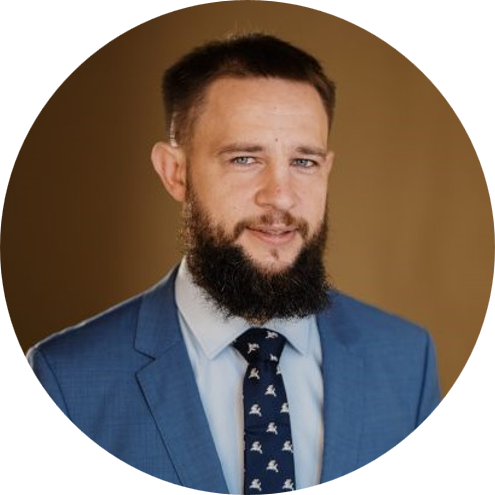 |
 |
|
Prof. PhD. Saulė Mačiukaitė-Žvinienė

Chairman of the committee
|
Associate Professor of Partnerships Robertas Vyšniauskas

|
PhD. Vytautas Stepas

|
Associate Professor PhD. Eglė Radvilė

|
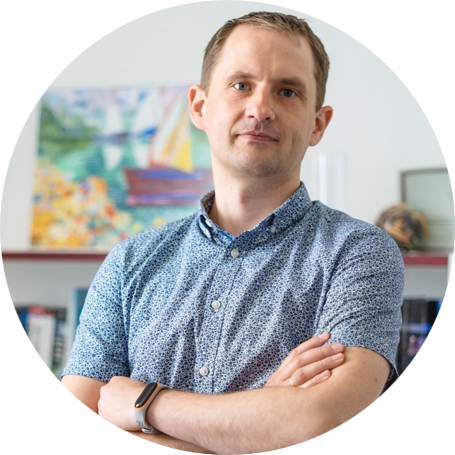 |
 |
|
|
|
Professor PhD. Pranciškus Vitta

|
Professor PhD. Christoph Shaefer

Representative of social partners
|
Representative of students (2)
|
|
Prof. Dr. Saulė Mačiukaitė-Žvinienė
|
"Anyone who wants to power the changes, to accelerate an innovative idea can make an excellent start at studying DeepTech Entrepreneurship programme at Vilnius University Business School. It is the MSc programme that blends academic knowledge, startup accelerator, venture builder skills and unique experience to prepare the next generation of technology entrepreneurship.
It is a pack for tomorrows entrepreneurs. Students learn how to become noticed in this world, how to make their ideas pass, to define opportunities and obstacles for innovation, to run a start up or re-load a business. Students will develop effective entrepreneurship techniques, learn how to merge science and business and become frontiers of the future prosperity. Throughout the process, the teams are assisted by academic and business mentors and have advantage to test their ideas at BIC of CERN technologies, to pitch their ideas to investors and global hackathons.
Vilnius University Business School in cooperation with CERN, scientists of physics and mathematics open a new page in higher education system by transforming traditional mindsets and creating a new culture of business, technology and leadership.
DeepTech Entrepreneurship programme is for anyone who wants to shake the industry and to become the next Steve Jobs, Daniel Ek or Mark Zuckerberg. This is the programme where I believe the future unicorns will start their long, but exciting journey. And Vilnius University is the place where value-driven innovation culture combines fundamentals of entrepreneurship and technology pioneered solutions. "
Prof. Dr. Saulė Mačiukaitė-Žvinienė
Head of Study Programme
President @National Council of Education
|
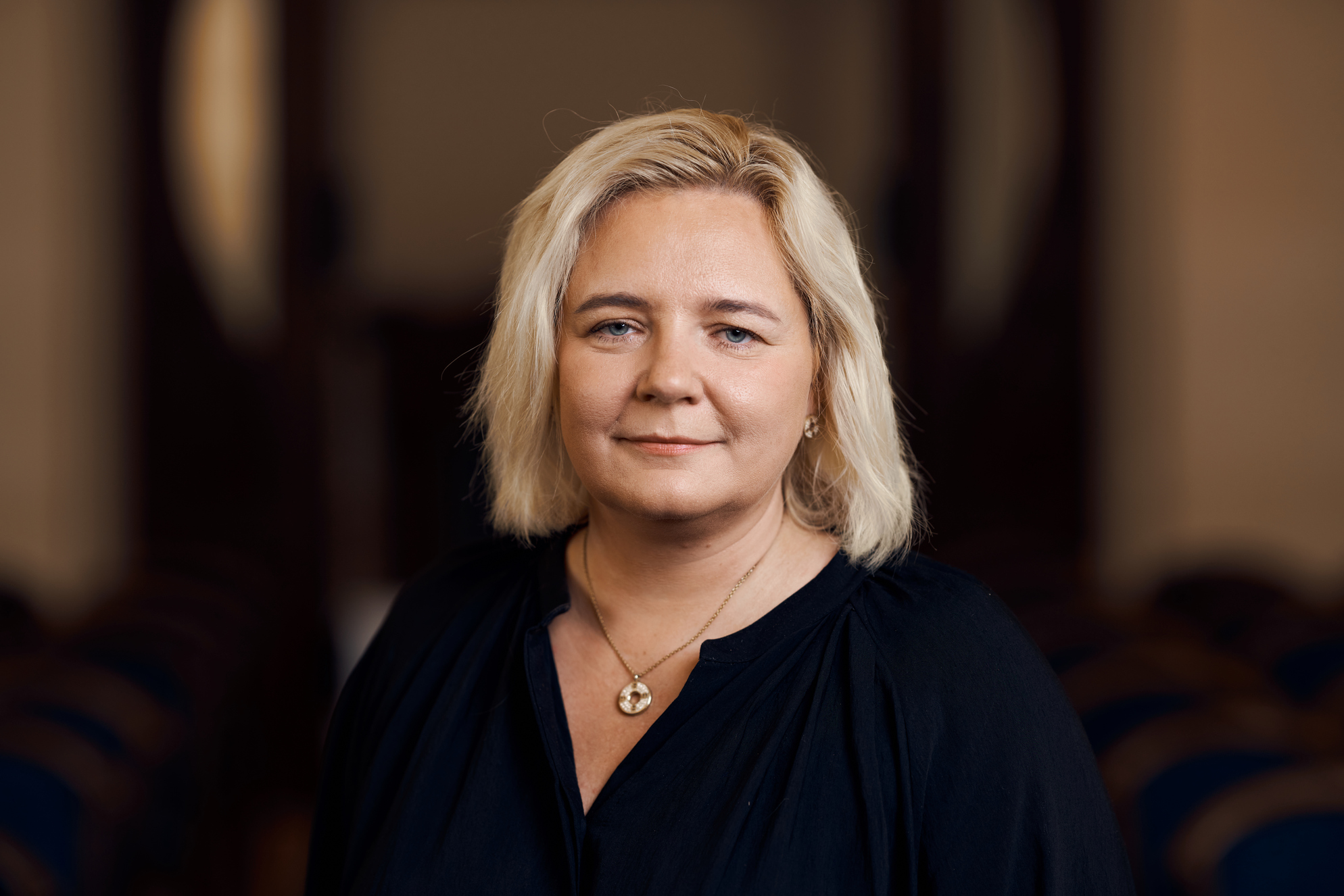 |
Prof. Dr.Christoph Schäfer
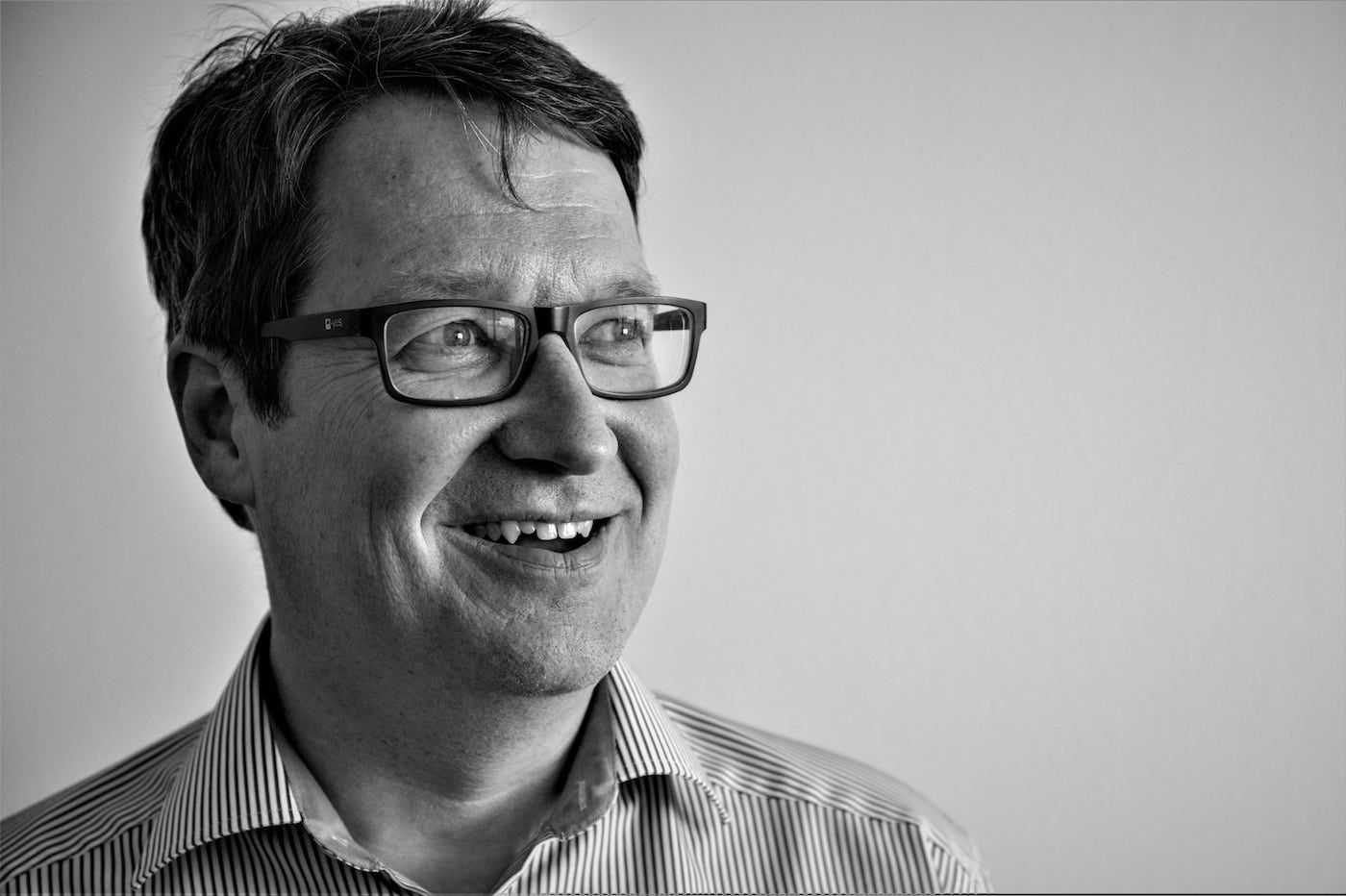 |
The European Centre for Nuclear Research (CERN) was founded in 1954 and its mission is to explore and understand the elementary particles and their interactions on which our universe is built upon. Hence, CERN is fully dedicated to fundamental research, and in order to pursue it, CERN makes intensive use of applied science needed in the conception, construction and operation of one of the biggest experimental apparatus scientists have ever done their experiments with.
From the World Wide Web, to PET scanners for cancer therapy or simply the touch screen, the diverse applied research conducted at CERN has helped to reshape the world we live in. The technological impact from fundamental research on the other hand is harder to see, yet no less impacting. The important difference between fundamental research and applied science is that pursuing fundamental research is without any specific purpose other than simple curiosity and understanding, whereas applied science always has a tangible goal. Because only without a tangible goal in mind, fundamental research teaches us things that are beyond our imagination, by simply presenting it to us.
Today every smartphone depends on knowledge about quantum mechanics and general relativity, something famous scientists like Max Planck or Albert Einstein would never have imagined. So disruptive innovation depends on fundamental research, even if the timeline spans decades or even a century to achieve.
CERN is welcoming entrepreneurs that share the same vision, looking not only at CERN’s current technologies but also at the huge innovative power in perceiving original ideas and transforming them into new products that unaware of today will become the necessities of tomorrow
Prof. Dr. Christoph Schäfer
Senior adviser @CERN
|
Dr. Birutė Miškinienė
|
Tomorrow's challenge starts from choosing DeepTech Entrepreneurship programme. As monetisation of technology in its early stage can be difficult to predict, participants also need to build use cases and define the value of participating in them before developing business models. Deep tech entrepreneurship plays a central role in the development of new scientific discoveries and their transfer to commercial applications. That's a very ambitious programme having access to CERN.
Dr. Birutė Miškinienė
Director @Business School
|
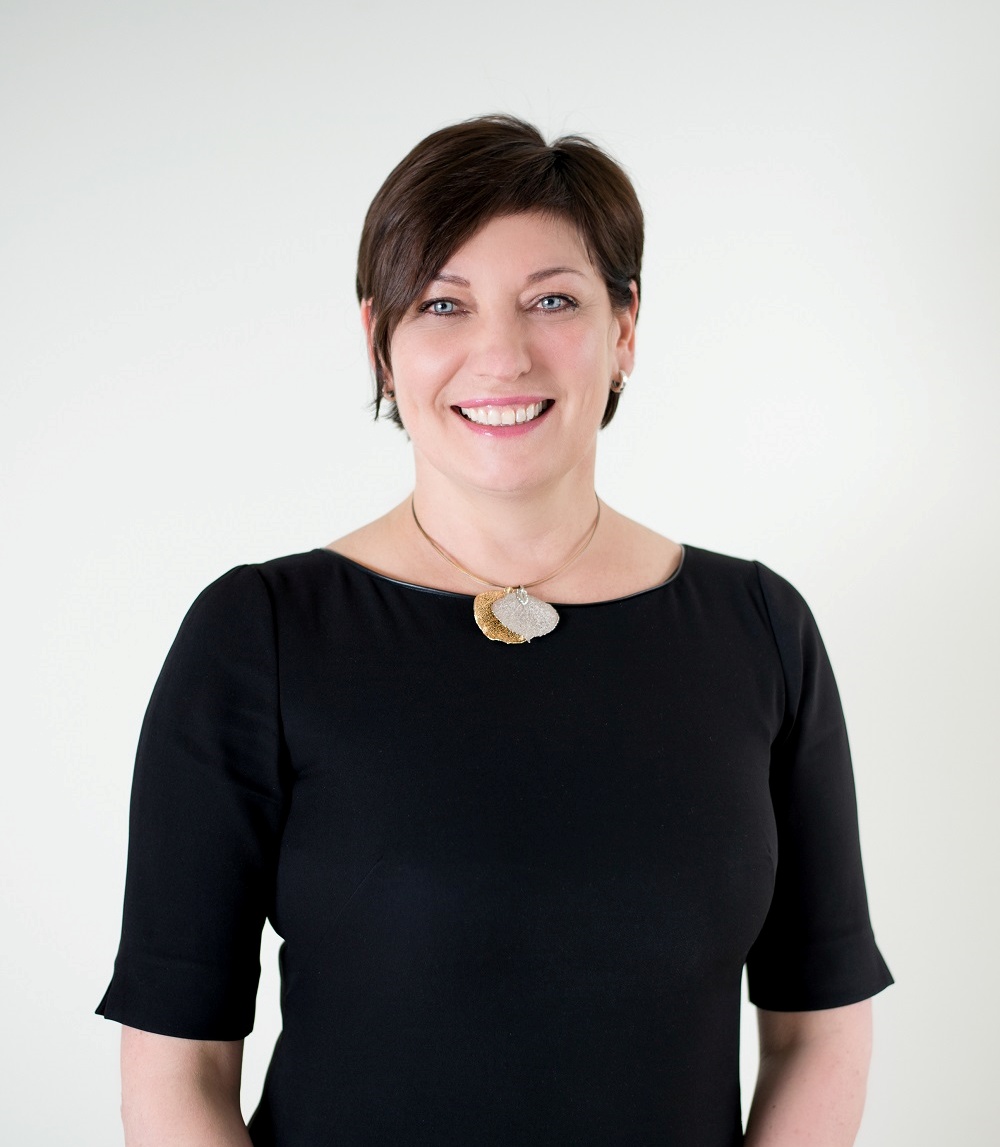 |
Reviews
Alius Kubilius
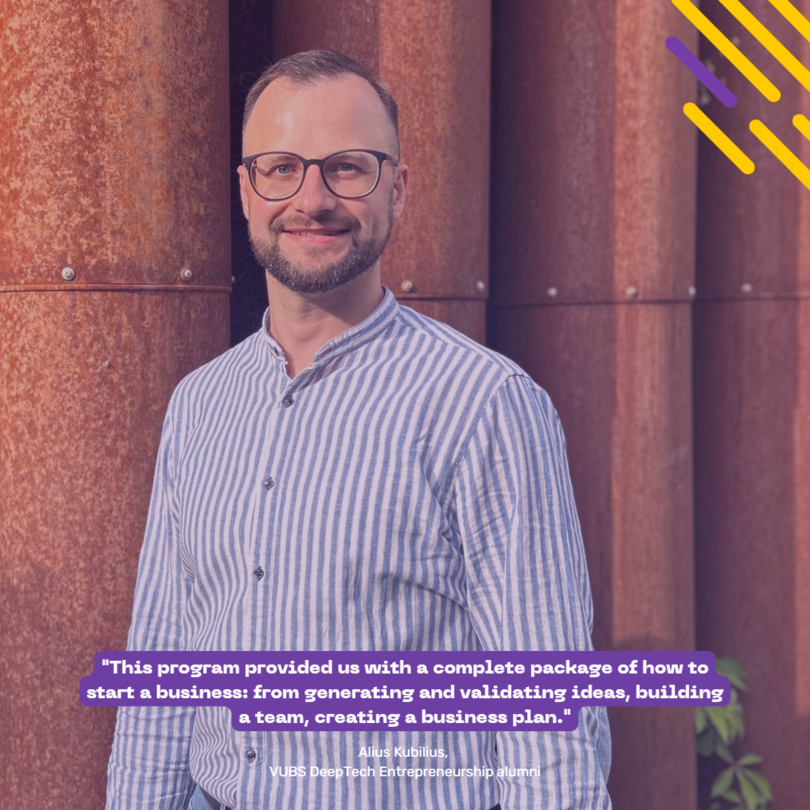
Ineta Plytnykienė
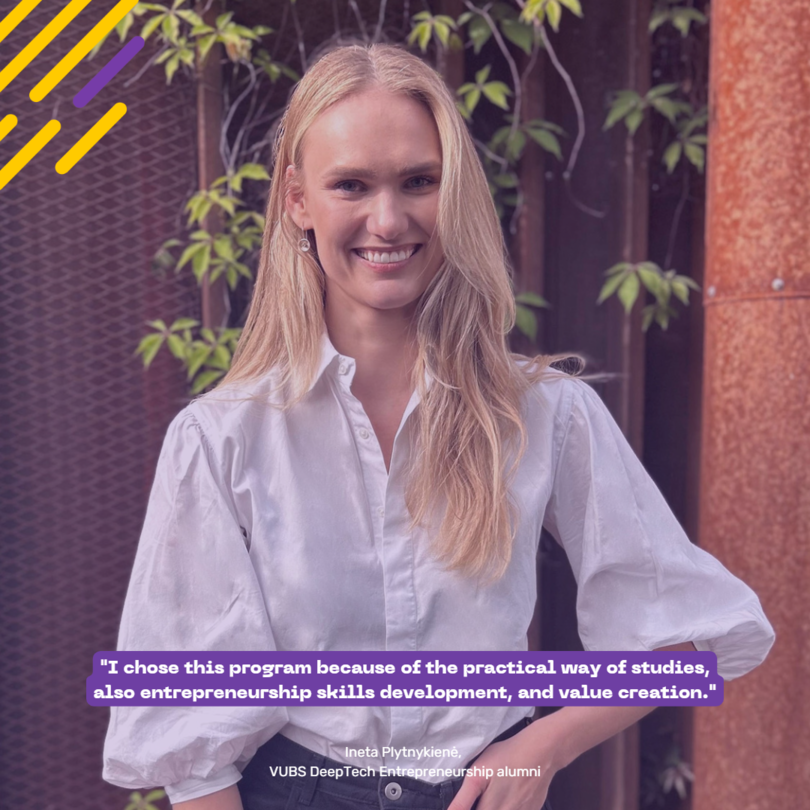
Mikas Pribušauskas
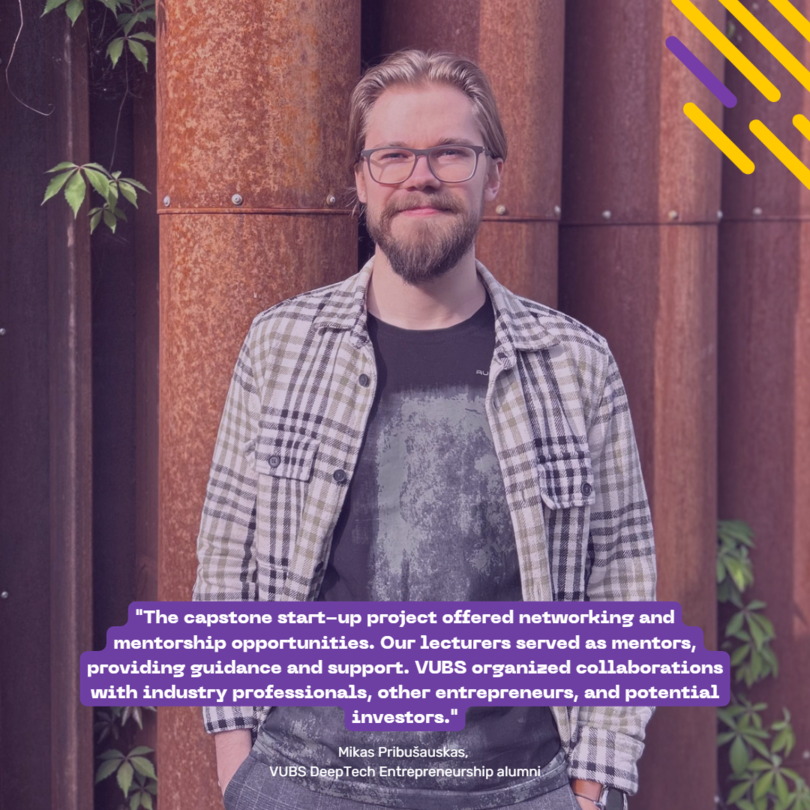
Jonas Petraška
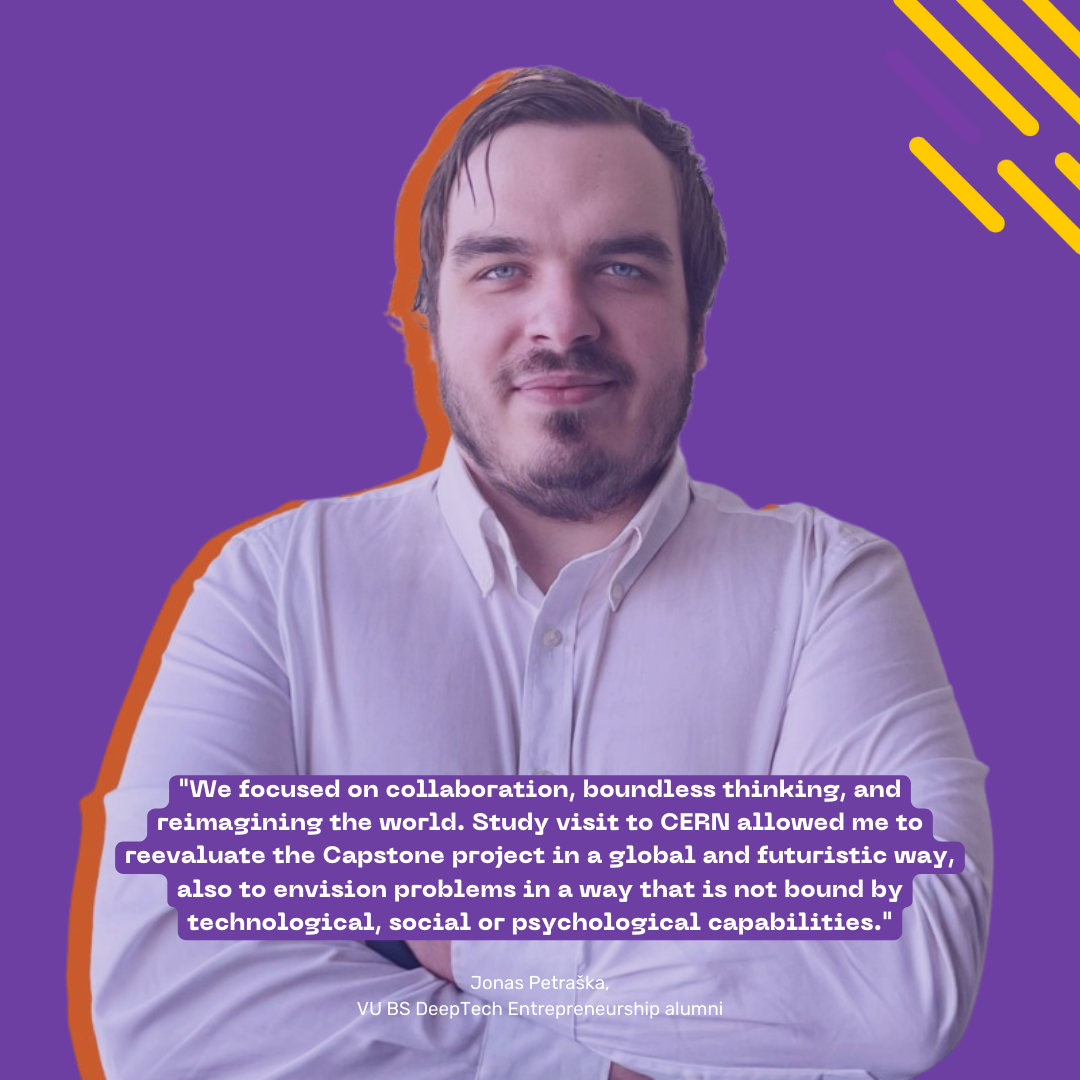
Lev Son


